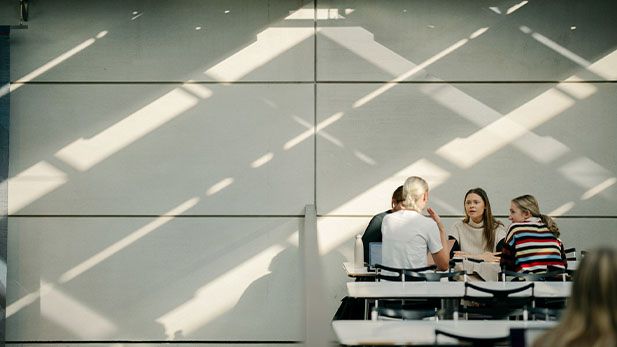Admission to CBS to be made easier for applicants from Region Zealand

The majority of Danish students at CBS come from Greater Copenhagen or North Zealand. To achieve greater diversity, CBS has decided to alter its evaluation criteria for quota 2 applicants to its bachelor programmes, with some of these changes already in place for this year’s admissions.
Following these adjustments, one strong criterion in the overall quota 2 evaluation will be work experience from EU development regions, i.e. less economically developed regions.
In Denmark, Region Zealand falls into this category of region, although the evaluation criteria also apply to all EU citizens seeking admission to CBS via quota 2
“Region Zealand is geographically close to CBS and naturally falls within our catchment area. Nonetheless not many of our students come from the region and we feel a sense of duty to support it, which is why for years we have been active at local secondary schools, offering masterclasses, for example. Including work experience from this region as a criterion for assessing quota 2 applicants will give us better scope to enable talented young people from towns such as Skælskør or Vordingborg to study at CBS,” says CBS’ Acting President, Inger Askehave.
Equal access to higher education in Denmark is a myth
Not only do the adjustments mean the inclusion of work experience from development regions as a main criterion, but also changes to specific admission requirements, a reduction in the weighting given to activities such as a period abroad, and a focus on diversity when evaluating motivation letters.
This is because CBS believes that the existing admissions system favours people from families with high socioeconomic status.
“It’s common to hear in Denmark that everyone enjoys equal access to education in our country but unfortunately that’s a myth. The current admissions system, which focuses on academic grades, favours certain sections of society. The same applies to quota 2 applications, where typically the main criteria are periods of study abroad, a stay at a folk high school, and motivation interviews, which equally benefits students from socioeconomically advantaged backgrounds,” explains CBS’ Equal Opportunities Officer, Alex Klinge.
He believes this practice means that both CBS and the business community are missing out on cohorts of young people with talent.
“It may well be that students from North Zealand statistically have a slightly higher grade average when they leave school, but we have to assume that a good number of young people in the rest of Zealand have the potential to do a degree programme at CBS,” he stresses, adding:
“Let’s say, you live in Nykøbing, your parents work in low-wage jobs, you’ve seen to the weekly shopping and helped look after your siblings, and you attain a grade average of 7 in your upper secondary school university entrance exams. Your skills could be just as good as those of your friend whose grade average is 10, lives in Nærum, has educated parents and who has been able to concentrate fully on her schooling. Even though your current academic level on paper is just below hers, your academic potential could well be the same – or even greater!”
Benefit for students as well as business and industry
CBS’ Dean of Education, Anna Thomasson, emphasises that the new adjustments do not mean that CBS is relaxing its academic requirements, but rather that the university is taking other factors into account in its evaluation:
“We believe academic grades are important. But they shouldn’t be considered in isolation because they don’t always give us the whole picture of someone’s potential. In our view, we need to introduce certain criteria that can compensate for the current geographic and social biases because right now we and society at large are overlooking a huge pool of talent,” she says.
Thomasson also foresees that if the students’ backgrounds reflect greater diversity, they will all be better equipped to shoulder responsibility for societal development, and that greater diversity among the students will enhance the quality and relevance of CBS programmes.
"At CBS we educate our students to play a part in the development of society. We recognise that business and industry must increasingly contribute to solving the current challenges such as the green transition, the climate crisis and digitalisation. This calls for employees who can see things from different perspectives, which is why we advocate the promotion of greater social and geographic diversity on our degree programmes. We see different social backgrounds and approaches as helping to stimulate and develop, often yielding better results,” explains Thomasson.